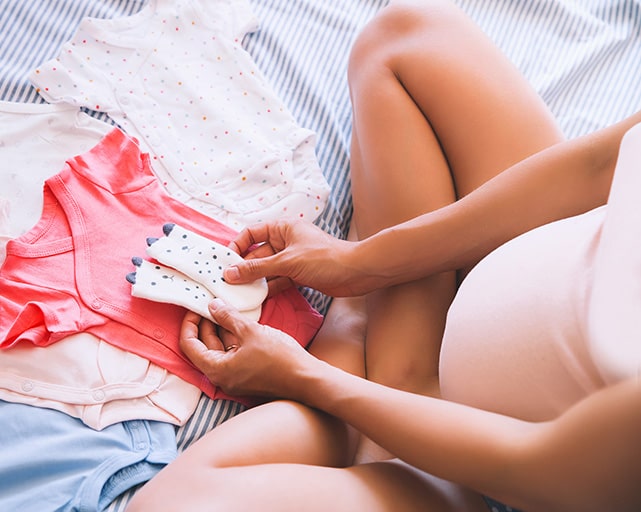What is nesting? Nesting during pregnancy explained

It may seem contradictory, but at some stage in late pregnancy – when you’re tired and want to rest – you can be gripped by a sudden burst of energy and a need to clean, tidy and organise everything in your home.
Don’t worry – you are just nesting, and it’s all a perfectly natural part of pregnancy.
What is nesting?
Nesting is down to more than just the practical need to get things ready for your baby.
Birds (hence the name) and other animals also do it and it is driven by a psychological urge to provide a safe environment. The nesting instinct is the result of a mechanism that kicks in during late pregnancy to protect and prepare for the unborn baby. It also helps to promote bonding and attachment between you and your infant.
Nesting usually kicks in at around week 28 of your pregnancy – when you are in the home straight. This is known as the third trimester, and it’s when your body starts preparing for the arrival of your baby. And at this point your brain is also getting in on the act, as it will be telling you to prepare the environment around you for your new arrival – literally getting your ‘nest’ ready.
A recent poll found that 73 percent of expectant mums reported nesting, but not everyone does it. So, there is no reason to be worried if you don’t experience nesting urges – it doesn’t mean anything is wrong with you or your baby.
And if you experienced the nesting urge with your first pregnancy – there’s a good chance it will occur during subsequent pregnancies, although probably in a milder way.
How do you know when you’re nesting?
You may just wake up one day with a sudden urge to clean and organise your entire home – and this can be very strong. Or, you could have a more gentle desire to get ready for your new arrival – such as by organising baby clothes, or preparing a cot.
You may also become more selective about who you see and socialise with, preferring to just spend time with people you trust, and stay at home more.
Nesting can be a sign of labour. But it can happen at any time, so it’s best to wait for other signs - such as contractions - before packing a bag and leaving for the maternity ward.
What to avoid while nesting during pregnancy
The most important thing to remember about nesting is that it is a natural part of pregnancy – so, to an extent, just go with the flow and take advantage of the nesting urge to get things done.
But, you need to be careful and look after yourself. So, you should avoid lifting very heavy objects or climbing ladders, as your balance and equilibrium change during pregnancy and you don’t want to risk falling. Also, be careful when you’re using strong cleaning chemicals such as bleach, as there is some evidence to suggest it can increase the risk of an unborn child developing asthma in later life. So, make sure the area is well-ventilated while you are cleaning.
And don’t be afraid to get your partner involved. You are having a baby together and so you share a responsibility to get your home ready for the arrival of your newborn. However, although men may not be driven by the same hormonal rush to nest as women, they will still want to prepare for baby and make sure everything is right – so don’t be surprised if your partner also goes on a spree of organisation and preparation without any prodding from you.
And once you’ve had your baby, the urge for nesting is likely to disappear. This is for practical reasons as much as anything else, as you will be busy feeding and looking after your newborn – and so are unlikely to have the time or the energy for prolonged bursts of cleaning and tidying
10 things to do while nesting during pregnancy
Here are a few things you CAN do whilst you're nesting...
- Set up a change station downstairs - it's always handy to have everything you need to change your little one in a variety of places around your house
- Get a bigger laundry basket - trust us, you'll need it!
- Fill the freezer - once you have your little one, you/your partner may be too tired to think about cooking, especially in the first few weeks so stock up your freezer in advance
- Find local groups you can join - this is a great way to meet other new parents once your little one is here
- Think about safety locks and start placing them around your home
- Stock up on staples - whether it's your favourite biscuits, snacks etc. make sure you have lots in the cupboard
- Buy in bulk - especially things like toilet roll, laundry detergent etc. so you have lots of what you need at home.
- Set up your little one's bedroom or nursery (with the help of family or friends!) so you have it all ready for when your new arrival comes home.
- Put your baby's clothes in size order - we know this may sound a little over-the-top but trust us, you'll want their clothes easy to reach.
- Make sure you're comfortable with the pushchair and can easily put it up/down
This content is sponsored by Pampers®












.jpg?sfvrsn=d5295380_1)









